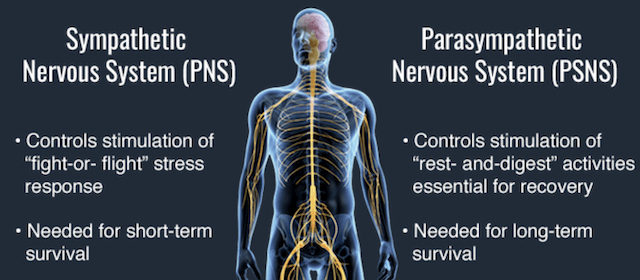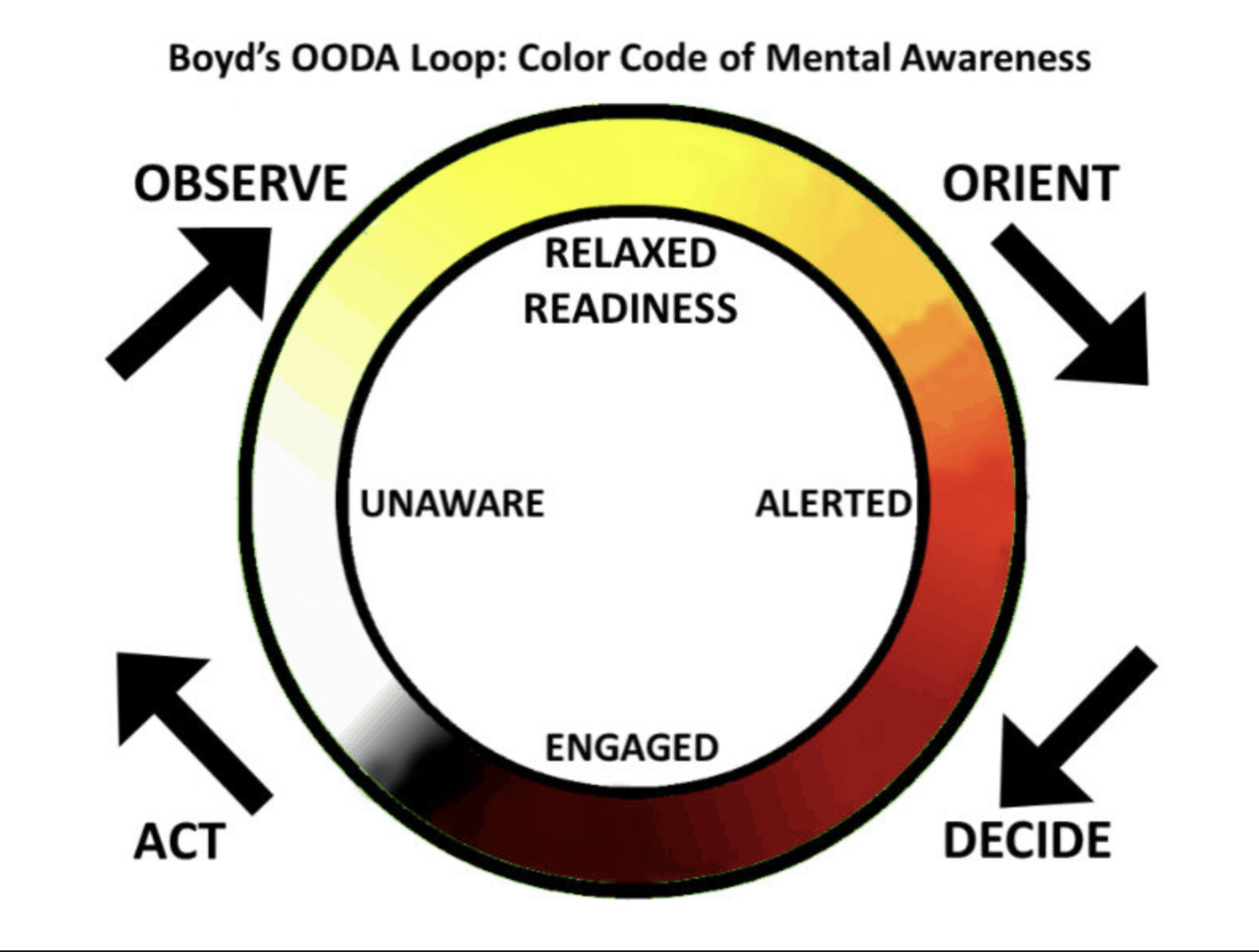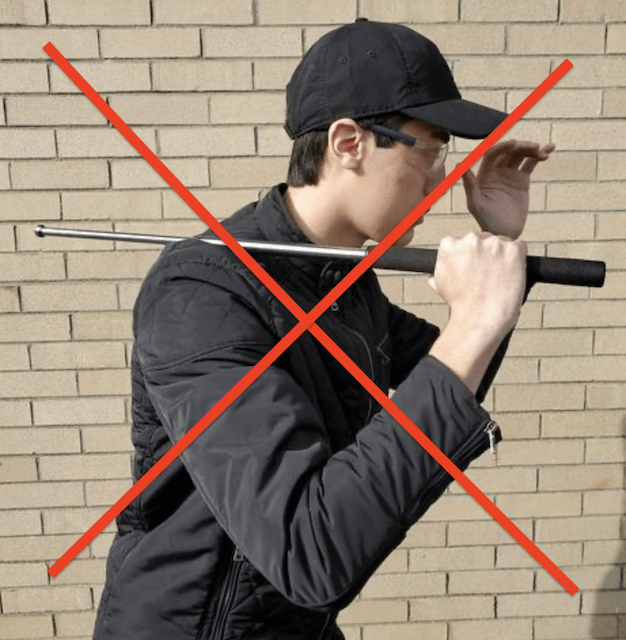Stress Inoculation Training (SIT) is the term used to represent a collection of coping strategies provided to the student. Developed in the late 1970s by Donald Meichenbaum, SIT was originally designed for use with multiple populations of individuals. Often thought of as “mental armour”, SIT helps to “inoculate” individuals to future potentially traumatising stressors, teaching them to psychologically deal more effectively with the stressors.
Stress inoculation training is analogous to building a tolerance to traumatic experiences, where an individual is initially exposed to a relatively easy stress scenario. For example, one to one light sparring. This prepares the person to be able to deal with more demanding stress drills, such as two/three on one sparring.
This type of training exposes students to stressors that are experienced in a street confrontation. SIT is designed so people are exposed to demanding and stressful situations. Ultimately these stressors are beneficial as students have been provided with the skills to respond to the challenges they will potentially face.
In short, the stress inoculation approach used by Guardian Defence training aims to mitigate the negative effects and stressors of street confrontations.
Stress inoculation training is supported by evidence suggesting that the successful performance of a task can improve an individual’s sense of personal effectiveness. Once an individual succeeds at a task, their sense of self-efficacy grows stronger, and they are more willing to endure in the face of obstacles. In addition, studies have shown that SIT is effective in reducing state anxiety, reducing skill-specific anxiety and enhancing performance under stress.
The rather controlled training environment provides opportunities for students to build psychological resilience, defined as “the process of adapting well in the face of adversity, trauma, tragedy, threats or even significant sources of stress,” which means ‘bouncing back’ from difficult experiences.
SIT thus promotes resilience by exposing students to stimuli that are strong enough to arouse their defences, without being so powerful as to overwhelm them, allowing them to bounce back from the challenge.
The three phases of Guardian Defence SIT
The Conceptualisation or Educational Phase
Stress inoculation training consists of three phases that can be customised to the stressor for which the student must prepare. The first phase presents students with knowledge that helps them visualise a potential “street confrontation” scenario. Phase one also considers students’ natural reactions to stressful events and how these reactions can benefit or work against them in a street environment.
The skill Acquisition and Rehearsal Phase
The second phase involves skill acquisition and rehearsal. Students develop and practice skills for stress management. They are provided information about coping strategies that they can use when confronted with stress. The coping strategies are usually grouped into arousal reduction, cognitive coping skills. The goal is for students to master the techniques in a low-stress, low-realism environment, so that they can apply the techniques during the practical training scenario.
The Application and Follow-through Phase
In the third phase, students apply the coping skills previously learned and practiced. This phase requires exposing trainees to a stressful environment that has elements of realism, including multiple attack situations interspersed with heart raising drills such as push ups, burpees. Whilst the student is performing these “drills” they are constantly being “disturbed” by their training partners.
Potential stressors can be physical, psychological and environmental
Stress inoculation works best when students are exposed to gradual increments of stress with discrete recovery periods between exposures.
Since stress inoculation produces success through gradual mastery, students are presented with challenges they can be expected to achieve with the skills they have been taught. Fight situations are controlled to increase trainees’ confidence in their ability to face real-world stressors.
Varying the settings and situations in which students are exposed to stress can also improve the students tolerance of stress across a range of stressors. In short, stressors should be intense enough to guide the interpretation of subsequent real-world events, but not so intense as to cause long-term problems for trainees.
Stress inoculation has a number of positive outcomes for all participants. First, situations that may have initially caused fear and anxiety in students may be seen as less threatening once the training is completed (a process known as desensitisation). Thus, students should find themselves less taxed by the stress they encounter, making them more resistant to the sources of stress they may face.
The objective of realistic training is to maximise training effectiveness without compromising the well-being of the students subjected to it. Striking a balance between realism and the safety of students is therefore crucial when designing realistic training using SIT.
Creating realism in street confrontation training, after all, does require a degree of hardship for the students. Training must be realistic enough that the students confront typical experiences involved in street confrontations, without causing actual physical or mental harm. Obviously, this places limits on the amount of realism involved in training.
Typically, training events are presented as a series of increasingly demanding challenges that the students must master. Succeeding in progressively more difficult training scenarios gives them the assurance they need to perform well under adverse conditions, which in turn gives them the confidence to keep themselves and loved ones safe on the streets.
SIT in relationship to Post traumatic Growth
Post traumatic growth is defined as a positive change as a result of experiencing a traumatic event. Whereas resilience refers to characteristics acquired prior to the traumatic event, post traumatic growth has been described as going beyond resilience by transforming and building upon the experience to create a positive outlook. This growth process often takes time, during which
individuals may report continuing distress following the trauma





Recent Comments